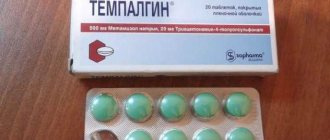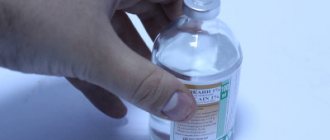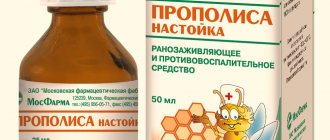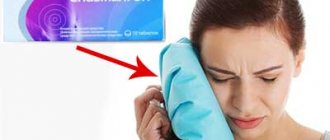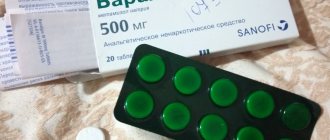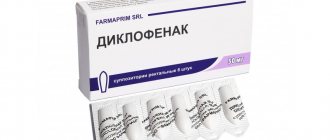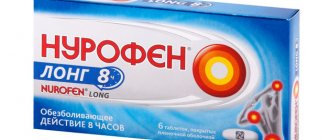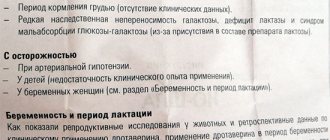Many dental pathologies require therapy using antibacterial medications. Depending on the characteristics of the development of the inflammatory process, medications of various pharmacological groups are prescribed. One of the most commonly used medications is Lincomycin. In this article we will look at how injections of the antibiotic “Lincomycin” are given into the gums.
Due to its wide range of effects, this drug is used to provide drug therapy for pathological processes, the development of which was caused by gram-positive microflora. By changing the dosage of Lincomycin in ampoules, it is possible to ensure the presence of the drug in the body in the concentration necessary to achieve a specific clinical effect.
The need for antibiotics
Every person has approximately 200 different types of bacteria in their mouth. Of these, about 40 are permanent, and the rest enter the mouth from the external environment, respiratory tract and digestive system.
In certain cases, saliva suppresses the activity of pathogenic microorganisms, thereby preventing the development of the inflammatory process. However, with the development of serious inflammation, including periodontal disease and caries, the microflora multiplies quickly, due to which the effect of saliva becomes insufficient. In this case, injections of the antibiotic “Lincomycin” are prescribed into the gums.
The drug kills various microorganisms, including those that are resistant to most antibiotics. In modern dentistry, this medication is used as injections into the gums for ulcerative gingivitis, osteomyelitis and periodontitis. It is indicated not only for the treatment of existing diseases, but for preventive purposes.
Instructions for use for adults and children
According to the instructions for use of Lincomycin in dentistry, the method of using the medicine depends on the form of its release. The dosage of the drug is prescribed in accordance with the patient’s age, the stage of development of the inflammatory process and the individual characteristics of the body.
Antibiotics are completely contraindicated for children under five years of age
Use of antibiotic depending on the form of release:
- capsules (for adults the drug is prescribed from one to one and a half grams per day, a single dosage is 500 milligrams , for children a single dosage is calculated per kilogram of weight - approximately thirty milligrams of antibiotic per day , the course of treatment is on average 7-14 days, take capsules it is necessary one hour before meals or two hours after eating; the drug can be washed down with water);
- ointment (the drug contains a broad-spectrum antibiotic, the ointment is applied to the wound in a thin layer once or twice a day , the course of treatment is determined by a specialist);
- injection solution (injections with Lincomycin are prescribed in the presence of complications, injections are made into the gums or intramuscularly, for adults the dosage is six hundred milligrams per day , for children - up to twenty milligrams per kilogram of weight , injections are carried out from one to three times a day, depending on the degree of development of the inflammatory process);
- solution for rinsing the mouth (the solution is used not only for the treatment of diseases of the oral cavity, but also for the purpose of their prevention, the procedure is recommended to be carried out once or twice a day , before using the drug, you must consult a doctor to determine the course of its use);
- patch (a tape impregnated with an antibiotic is glued to the inflamed area, has an antimicrobial effect and eliminates the inflammatory process, the effect of the patch is 8 hours, the course of treatment is controlled by a dentist).
Read also: Toothpaste for sensitive teeth instant effect
Pharmacological properties
What do the instructions for Lincomycin injections tell us? The medicine, which is a member of the lincosamide class, has antibacterial and antimicrobial properties. By varying the dosage, it is possible to achieve the following effect on pathogenic microflora:
- The supply of the medication is in medium or minimal concentration, which helps stop the proliferation of pathogenic bacteria. This effect is called bacteriostatic.
- Approaching the maximum concentration helps destroy harmful microorganisms. This effect is called bactericidal.
“Lincomycin” in ampoules has a direct effect on the bacteria that provoke the pathological process, helping to stop the process of protein synthesis in the cells of pathogenic microflora. As a result, the peptide bonds necessary for their vital functions are disrupted. The drug is most effective against gram-positive bacteria, which include streptococci, staphylococci and anaerobes.
Benefits of Lincomycin
Perhaps the biggest advantage of the drug is that it can remain effective for quite a long time. It is the accumulation of Lincomycin in bone tissue that subsequently prevents various purulent processes in the gums. Lincomycin also effectively fights staphylococci and viridans streptococcus, which cause tooth decay. And of course, how an antibiotic neutralizes all microbes that are resistant to antibiotics. It should also be noted that the prices are affordable for any client, as well as the fact that Lincomycin is not addictive.
Among the negative consumer reviews, one can highlight, mainly, unpleasant sensations when administering the injection, as well as, indeed, in all injections into the gums and, since Lincomycin is one of the old drugs in medicine, it has a narrow range of antimicrobial effects.
When the drug doesn't work
A medicine may be ineffective if the inflammatory process has developed as a result of the influence of gram-negative bacteria (for example, enterococcus), viruses or protozoan fungi, which are resistant to this antibacterial agent.
The medication can be used not only for therapy, but also for preventive purposes, using rinses that help prevent the occurrence of caries. If the medicine is used as part of medical therapy, the active substance lincomycin hydrochloride accumulates in the body and its continuous free flow into the inflamed dental tissues or gums.
The active substance entering the body can be quickly absorbed from the digestive tract and penetrate into the general bloodstream. After penetration into the bloodstream, most of the substance binds to plasma proteins, with the maximum concentration observed 3 hours after application of the drug or injection into the gum area.
The antibiotic "Lincomycin" accumulates in organ cells and fluids, present in maximum quantities in the kidneys, bone tissue, liver, heart muscle, saliva and bronchial secretions. The active element is characterized by penetration through the blood-brain barrier and excretion in breast milk. After passing through the metabolic process in the liver, the remaining drug is excreted in feces and urine. Half-life occurs in approximately 5-6 hours.
Let's look at how injections of the antibiotic "Lincomycin" are given into the gums below.
Analogues and compatibility
Lincomycin is an antibiotic of the lincosamide group. It is active against most gram-positive microorganisms of anaerobic and aerobic species.
Lincomycin has no effect on gram-negative microorganisms, and therefore may be completely ineffective. That is why the remedy can only be prescribed by a specialist.
Lincomycin has a fairly strong affinity for bone tissue. But given that it does not help against all types of bacteria, it is often used with fluoroquinolones or aminoglycosides, which affect exclusively gram-negative pathogens.
Lincomycin is a bacteriostatic antibiotic. Only high dosages make it possible to recreate the bactericidal effect. This drug should not be used together with chloramphenicol, erythromycin, ampicillin, which can suppress the effectiveness of each other.
A direct analogue of the drug is Clindamycin, a drug from the lincosamide group. It has a wider spectrum of action, greater effectiveness and bioavailability when compared with Lincomycin. The price for 10 capsules of this drug is 150 rubles.
Where else is it used?
In addition to dentistry, Lincomycin is also used in other areas and for other pathologies:
- With otitis media of purulent type;
- For respiratory infections in the lower respiratory tract;
- For pleurisy and lung abscess;
- For infections of bone tissue and joints;
- For infections affecting soft tissues and skin - skin abscess, erysipelas, phlegmon;
- For carbuncles and boils.
If you have previously taken Clindamycin, Lincomycin or another drug based on lincosamides, then the likelihood of staphylococcal immunity to the active component increases significantly. This group of bacteria very quickly develops resistance to this group of drugs. For the same reason, macrolides, which are similar to this group and are cross-resistant, are not prescribed.
Indications for use
The use of the drug in the form of injections into the gums is necessary if the patient is diagnosed with the following dental pathologies:
- Development of infectious inflammation in the tissue of the maxillofacial apparatus.
- Transition of the pathological process of inflammation into a purulent form with the formation of abscesses and fistulas. Such phenomena are observed, as a rule, if periodontitis or periodontitis develops (to alleviate the patient’s condition, the concomitant administration of this antibacterial agent with Lidocaine is provided).
- Ulcerative gingivitis occurs in severe forms.
- Inflammatory process in the tissues of the gums and bones with symptoms of osteomyelitis.
It is also advisable to use this medication in cases where there is a high probability of secondary infection of open wounds formed after tooth extraction.
Many people are wondering whether it hurts to inject Lincomycin into the gums. There is no definite answer, since each person has a different sensitivity threshold. For some, the injection caused only discomfort, while for others it caused acute pain.
How to inject lincomycin into the gums
This information cannot be used for self-medication! Consultation with a specialist is required!
Lincomycin capsules are an effective and potent broad-spectrum antibiotic used to treat severe infectious and inflammatory diseases. Dispensed by prescription. Release form: white capsules in a gelatin shell with a yellow cap.
Resistance to the drug develops slowly, it is well able to penetrate bone tissue, is distributed throughout the fluids and tissues of the body, and is able to penetrate the placenta. There is cross-resistance between clindamycin and this medicine, this must be taken into account during treatment.
The doctor prescribes Lincomycin in capsules for the therapeutic treatment of sepsis, pneumonia, septic endocartitis, lung abscesses, osteomyelitis, wound infections, pleural empyema. The drug is also used in dentistry to cure infections of the maxillofacial system; together with a lidocaine solution, it eliminates suppuration in periodontitis, periodontitis and gingivitis.
The daily dosage of 1500–2000 mg of the drug is divided into three to four doses before meals. This is 2-3 capsules at a time, which should be washed down with water. If hypersensitivity to the drug occurs, treatment is stopped and the doctor will find a replacement for this antibiotic. Pregnant women and women during lactation do not take it, so as not to harm the baby.
The use of the drug is incompatible with the following medications: barbiturates, novobiocin, calcium gluconate, kanamycin, heparin, magnesium sulfate, theophylline and ampicillin.
Side effects include the following symptoms: nausea, stomatitis, stomach pain, glossitis, exfoliative dermatitis, vomiting, diarrhea, anaphylactic shock, increased plasma bilirubin and liver transaminase levels, Quincke's edema, urticaria, thrush in women, neutropenia, thrombocytopenia .
Therefore, before starting treatment, you need to weigh its necessity and, at the same time, take medications that soften the effect of the antibiotic on the body, and the microflora in particular.
Lincomycin capsules can be stored in a dry place for up to 4 years if the air temperature is not higher than 25 degrees. Keep away from children.
Reviews about “Lincomycin (capsules)” from doctors and patients:
For many it causes diarrhea, but I did not have such a problem.
Somehow my teeth hurt. I went for treatment, everything was cured, but the pain did not subside. They prescribed a lot of expensive medications. I couldn’t sleep for two weeks because of the pain. I was on painkillers. The doctors didn't know what to do! They checked the tertiary nerve, etc.
We discussed and decided to remove all my teeth (I am 29 years old). The appointment was scheduled for the next day. In the evening, a friend called and recommended lincomycin in ampoules. I bought it and gave it an injection that same evening. then alone at night.
I woke up this morning without pain! I don't go to those doctors anymore! Saved my teeth!
Reply Cancel reply
Lincomycin was prescribed to me by a dentist at a tragic moment. when we jointly tried to save my tooth from extraction. I was going to go far and long on vacation, and I came just in case to check the aching tooth. A dilemma arose: either save the tooth, or annihilate it and calmly go on vacation.
The decision was made like Solomon: to take the risk of saving everything))) The doctor prescribed me the strongest drug Lincomycin for the trip with strict instructions: if the tooth twitches, then find a blacksmith on the road to urgently remove the dangerous object from the oral cavity. The tooth was located in the upper jaw and the outflow of pus could provoke unpleasant things, including meningitis.
The dosage was prescribed according to the prescription: 0.5 g 2 times a day. The medicine helped perfectly, the inflammation decreased noticeably every day. Lincomycin generally inspires confidence in itself. This antibiotic has a good reputation. It has been produced by domestic enterprises for a long time and is inexpensive. They say it is rarely counterfeited.
That's a plus! Lincomycin is usually prescribed for purulent inflammation. He is an expert in this field.
Lincomycin should not be taken for a long time, because the medicine destroys the flora of the stomach. In order to somehow neutralize the effect of Lincomycin, probiotics are prescribed in parallel from the third day of taking it. Lincomycin, when taken, promotes some disinhibition and even muscle weakness. There is a risk of blood clots.
Be sure to take only under the supervision of your doctor.
An excellent antibiotic that deserves all praise: powerful, effective. But it should be used only in extreme situations, since there is also a lot of harm from it
Reply Cancel reply
Lincomycin injections are used by most dentists. An antibiotic of this type has a detrimental effect on the pathological pathogen of infectious diseases that lives in the oral cavity.
A special feature of lincomycin is that it can be deposited in bone tissue and thereby create an optimal concentration for the prevention and treatment of inflammatory diseases of the oral cavity.
Lincomycin injections into the gums - harmful or beneficial?
The use of lincomycin for inflammation in the oral cavity has conflicting reviews. Generally, lincomycin is reviewed negatively because this drug adversely affects the intestinal microflora. But at the same time, there is also widespread use of the drug in dental implantations, treatment of gum diseases, etc.
In what cases are injections given in the gums?
Lincomycin and its injections are used in the treatment of many inflammatory diseases of teeth and gums. Thus, the successful use of lincomycin has been noted in eliminating inflammation in the ligaments that hold each tooth in its cell. Lincomycin is also used to eliminate inflammation in the periodontal tissues and any purulent infections of the mouth.
Also, the effectiveness of lincomycin was noted in dental implantation and elimination of the inflammatory process caused by uncomfortable and poor-quality dentures.
Lincomycin allows you to cure inflammation of the gums (various forms of gingivitis), with the formation of purulent processes in periodontal pockets (cracks resulting from the appearance of tartar in the periodontal area).
Lincomycin injections are also used to eliminate severe conditions that arise as a result of serious purulent inflammation in the oral cavity, when the integrity of bone tissue is damaged due to advanced purulent processes in the oral cavity.
Lincomycin is also used in various dental operations involving periodontal tissues as a prophylactic agent against periodontal disease. Lincomycin is used to prevent the appearance of purulent inflammation during dental procedures in the oral cavity - removal of dental calculus or operations in the periodontal tissues, removal of plaque on teeth or curettage. Lincomycin belongs to the class of antibiotics and is of particular value in dentistry.
Post navigation
Source: https://glivec.su/2018/07/25/linkomicin-kak-kolot-v-desnu/
Dosage forms
Depending on the purpose of using the pharmacological agent, it is possible to purchase it in the form of capsules, patches or ampoules with lyophilisate, which produces a solution intended for intramuscular or intravenous administration, as well as for administration directly into the gums.
The duration of therapeutic procedures is up to two weeks. If the dental pathological process develops with the presence of symptoms of osteomyelitis, the duration of treatment can last at least three weeks.
Intramuscular administration of the drug "Lincomycin" or injection into the gums is indicated in cases where a severe form of dental pathology is observed. To normalize the condition, 600 mg of the drug is administered intramuscularly to adult patients a maximum of three times a day. The antibiotic should first be diluted with isotonic saline solution. It is very important that injections are given after 8 hours.
The price of "Lincomycin" in ampoules is quite reasonable. We will indicate it below.
Antibiotics and other drugs for periodontitis
Now the pharmaceutical market offers a wide range of forms of Lincomycin to choose from. The dentist independently chooses the most optimal format based on the required purposes, since the reason for their use differs.
| Form of the drug | Method of use | Optimal dosage | Treatment time limit (how long can be applied) | Reason for use |
| Capsules | Take 2 hours before meals, without chewing, but with water. | From 4 to 6 tablets per day. For children, calculated based on weight | From 7 to 21 days | To remove toothache and inflammation |
| Ampoules | Injections are administered: intramuscularly or intravenously | Adults: Intramuscularly – 2 times a day, 600 mg; Intravenously - 600 mg, diluted in 250 ml of glucose solution. For children, the composition is calculated at the rate of 10 mg per 1 kg of weight | Injections should be given every 8-12 hours for up to 7 days | In the presence of severe inflammation and destruction in bone tissue |
| Ointment | Take a cotton swab, apply Lincomycin to it, and apply it as a compress. Apply with your finger to inflamed gums. Rinse your mouth before use | A small layer 3 times a day | Up to 2 weeks | Treatment of gums, freezing of viruses and infections |
| Patch | It has 2 sides - hydrophilic and hydrophobic (one protects the tooth from foreign substances, the second holds the medicine). The required piece is cut out of the patch, from which the outer layer is removed, it is applied to the damaged area for 6-8 hours | Patch size according to the volume of the damaged area | 7-14 days of use | For orthopedics and dental surgery |
The drug has a peculiarity - the percentage of absorbed substance depends entirely on the food eaten beforehand. It is advisable to use it only on an empty stomach, then the concentration of the substance reaches a third of the administered dose, after eating the indicator drops significantly and has no effect.
DETAILS: If periodontitis is necessary, teeth must be removed
In general, it is intended for fairly rapid healing of small wounds left after tooth extraction and the destruction of inflammation.
Depending on the purpose of using the pharmacological agent, it is possible to purchase it in the form of capsules, patches or ampoules with lyophilisate, which produces a solution intended for intramuscular or intravenous administration, as well as for administration directly into the gums.
The duration of therapeutic procedures is up to two weeks. If the dental pathological process develops with the presence of symptoms of osteomyelitis, the duration of treatment can last at least three weeks.
Intramuscular administration of the drug "Lincomycin" or injection into the gums is indicated in cases where a severe form of dental pathology is observed. To normalize the condition, 600 mg of the drug is administered intramuscularly to adult patients a maximum of three times a day. The antibiotic should first be diluted with isotonic saline solution. It is very important that injections are given after 8 hours.
The price of "Lincomycin" in ampoules is quite reasonable. We will indicate it below.
Despite the development of medicine, there are still unresolved problems. These include oral disease – periodontal disease. The disease is chronic.
Undoubtedly, this causes great inconvenience to the patient and significantly worsens the person’s quality of life.
Therefore, the question remains relevant to this day: what medications to use for periodontal disease? In the article we will look at the etiology of the disease, the causes of its occurrence and treatment methods.
Periodontal disease
This disease is characterized by primary dystrophic changes. Fortunately, it does not occur very often among the population (no more than 10%). However, the primary stages (gingivitis, periodontitis) are diagnosed much more often. Sometimes gingivitis is detected during examination even in children as young as 10 years old.
During an exacerbation, the disease is complicated by the inflammatory process on the gums. During this period, people most often turn to specialists. This stage is diagnosed as periodontitis. The situation is complicated by the fact that in the initial stages the patient does not feel pain. Accordingly, consultation with a doctor occurs at more serious stages. By that time, the disease is already chronic.
We can only talk about factors that can provoke the development of the disease. Until now, medicine does not know the exact causes of its occurrence. Experts believe that there is a genetic predisposition in some people.
Doctors pay attention to concomitant pathologies. For example, people suffering from the following ailments are at risk:
- diabetes mellitus;
- disruption of the functioning of the endocrine glands;
- chronic diseases;
- hypertension;
- atherosclerotic damage to blood vessels;
- systemic damage to bone structures.
Depending on the cause, the doctor will prescribe treatment. There are various methods. An effective cure for periodontal disease is selected individually for each patient. Everything depends on the results of the preliminary examination.
The doctor chooses a method of combating the disease based on diagnostic studies. The clinical manifestations of the disease are also taken into account. The main signs that periodontitis has turned into periodontal disease:
- absence of inflammation on the gums;
- reduction of interdental septa;
- prolapse of soft tissues;
- exposure of the neck and root;
- tooth mobility.
Modern treatment of periodontal disease with drugs allows achieving good results. Efficiency is increased thanks to an integrated method of dealing with consequences.
In addition to medications, specialists today have orthopedic and surgical treatment options. Complex measures also include gum massage.
Drug therapy is aimed mainly at supporting the condition of tissues and eliminating pathological microflora.
There is no point in immediately using medications for periodontal disease. After the examination, it is necessary to get rid of plaque and stones. These manipulations are carried out in various ways.
The doctor can manually remove deposits using special instruments. Hydrogen peroxide is often used to remove soft plaque. This product gently cleanses the oral cavity.
At the same time, disinfection is carried out. The solution promotes rapid healing of wounds, if any. You can also use hydrogen peroxide at home.
After all, the hard bristles of a toothbrush hurt the inflamed gum tissue.
Modern technologies make it possible to clean the oral cavity as effectively as possible. Today, lasers are successfully used for this. The advantages of this method are obvious.
Firstly, the patient does not experience any pain during the procedure.
Secondly, the laser effectively disinfects the pockets that form around the teeth. They become sterile, which prevents the growth of bacteria.
Next, the specialist recommends that the patient switch to drug treatment.
Having eliminated the stones, you can proceed directly to treatment. If significant inflammation of the gums is visualized, then therapy should be carried out under the supervision of a specialist. In cases where the symptoms are less pronounced, treatment can be carried out at home.
The course may consist of the use of an antiseptic mouth rinse. The drug Chlorhexidine is suitable for this. An anti-inflammatory agent should be used in combination. Cholisal gel is suitable for this. These medications for periodontal disease are used in a course of 10 days.
Procedures must be carried out in the morning and evening. After breakfast and oral hygiene, experts recommend rinsing with an antiseptic. Then gently dry the gums with a gauze pad. A gel is applied to areas of contact between soft tissue and teeth.
After the procedure, you must refrain from eating for two hours.
Some time ago, we often heard in advertising about the benefits of using chewing gum. They actually remove plaque from teeth, preventing the development of bacteria.
Soon, pharmaceutical companies began producing drugs of bacterial origin. Such drugs have anti-inflammatory properties and promote the death of fungi and gram-negative bacteria. Available in tablets. The drugs can also be purchased in the form of solutions for inhalation.
The medicine for gum periodontal disease “Imudon” has a pronounced anti-inflammatory effect. The drug is released in the form of lozenges. They contain a mixture of bacterial lysates, the composition of which corresponds to the pathogens that most often cause inflammatory processes in the oral cavity and pharynx.
Trental tablets are used to normalize the blood supply to gum tissue. This medicine for periodontal disease has received only positive reviews. It has vasodilating properties.
With periodontal disease, degenerative changes occur due to insufficient oxygen supply to cells and failure of nutrient delivery.
DETAILS: Thrush in infants - causes, symptoms, treatment
At the same time, the drug reduces blood viscosity and increases the elasticity of red blood cells.
Also, in the fight against the disease in question, you can use the drugs “Tykveol”, “Insadol”. In any case, you should consult your doctor before choosing this or that remedy.
Very common medications for periodontal disease are Lincomycin and Trichopolum. They are used in combination with anti-inflammatory drugs. Or the doctor prescribes them after therapy to consolidate the effect.
The drug "Lincomycin" is characterized by a wide spectrum of action. It is well absorbed and can accumulate in bone tissue.
This medicine increases the effectiveness of the anti-inflammatory course and increases the likelihood of the death of pathogenic microflora. On average, the drug is taken for 2 weeks. Sometimes the period increases.
The drug "Trichopol" is prescribed for severe forms of infection. It has a good antimicrobial effect, increases blood supply, and reduces the sensitivity of affected teeth.
Some doctors believe that the best cure for periodontal disease is antibiotics. Sometimes, in addition to the main drug, Metranidazole is also prescribed. It is also classified as an antibiotic. It increases the effectiveness of treatment.
Contraindications and adverse reactions
The use of this antibacterial agent is contraindicated in the following situations:
- Hypersensitivity to the active substance.
- Impaired kidney or liver function.
- Pregnancy and breastfeeding.
In some cases, drug therapy can cause the following negative reactions of the body:
- Failure in the functioning of the hematopoietic system with a significant decrease in the number of leukocytes, neutrophils, and platelets.
- The appearance of symptoms of stomatitis or glossitis.
- Disturbance of digestive processes with the appearance of symptoms such as pain in the stomach, vomiting, nausea.
- Colitis, esophagitis, high activity of liver enzymes.
- Allergic phenomena - dermatitis, anaphylactic shock.
- Headache, muscle weakness, disorientation, high blood pressure.
These phenomena can develop when an antibacterial drug is introduced into the gum tissue.
During the entire therapeutic course it is strictly forbidden to drink alcohol.
